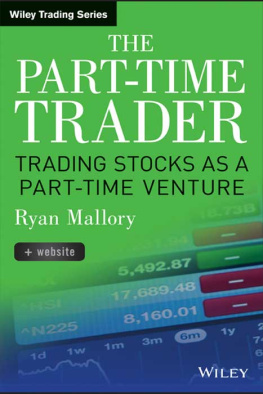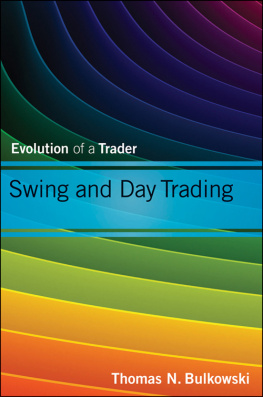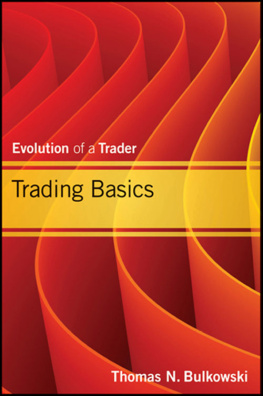This book is meant to be informational and shouldnt be used as trading or investingadvice. All readers should gather information from multiple sources to create theirpersonalized investment strategies and trading systems. The authors and publishersmake no guarantees related to the claims contained herein. Always seek the adviceof a competent licensed professional before implementing any plan or system thatinvolves your money. Please invest and trade responsibly.
ABOUT THIS BOOK
Why I wrote this book
My students and social media followers know me as a price action trader. I have beentrading for more years than I can remember now but throughout all of those yearsapart from being a keen trading book reader, I have been an avid philosophy reader.
Philosophical texts have been with me since I was in high school. Usually, I likedfinishing my homework quickly and then moving to the more interesting part-readingbooks from different fields. I remember clearly my first philosophical book thatI read cover to cover. This was Spinozas Ethics. I was sitting on my parents balcony,drinking iced coffee and enjoying the South European warm sun while gulping thisvolume in one go. This was my first tiny step into a field so vast that I am stillnot being fit enough to grasp even a small part of. Remembering this moment of mylife, I realized how similar philosophy is to trading. Just thinking about it mademe realise that the most logical book that a long time trader and an avid readershould write is a book about trading philosophy. Here is how the idea to write thisThe Quiet Trader was partially born.
The other reason why I picked up the pen and started writing The Quiet Trader wasbecause I find philosophy one of the best ways to approach trading. The way philosophytackles common (or even not so common) life problems is so close to the way thattraders are questioning certain trading outcomes. Up to this date, it is still verymuch a mystery to me how is it possible that nobody thought to link those two disciplinesin one book. Well, I am not sure if I am a trendsetter, but the great pleasure Ihad from writing this book and sharing with my readers the excitement over the twosubjects is what made the past 12 months writing this book a real adventure for me.From deciding which philosophers to include in this volume to fighting with publishersissues and coming up with various trading examples at the end of each chapter, ithas all added up to one year that filled my early mornings and late nights with greatmental breakthroughs and made this year one of the most challenging in my life. Iowe this to all of you my readers, because you certainly were the greatest motivationand drive for finishing The Quiet Trader on time. And of course my family who werethere to support me throughout the process. That is why I dedicate this work to them-myreal inspiration.
Why the Quiet Trader?
The quiet trader might sound strange to a lot of you, but this for me has been themost logical name for this book. I believe that the best traders I have known inmy trading career have always been the quiet traders. These were the guys and galsthat knew what trading failure meant. These were the exact same people who knew howto best control their emotions and these were the exact same traders who never talkedabout trading. The best traders that I have known in my entire career barely talkedabout trading unless they were asked about it. These traders are high erudites, andnine out of ten times preferred to talk about matters that had nothing to do withtrading, or at least were not directly related. These are a highly intelligent breedthat were not particularly sociable and liked to mind their own business. The besttraders I have known have always seemed even a bit distant. These are great mindswho know the importance of humility and were familiar with the worthlessness of smalltalk about trading. These are the quiet traders. I guess you should have a prettygood idea by now why I came up with this book title.
My Background
I remember my first day working for this London based prop trading company. I wassitting on a desk with another trader from Malaysia and I was surrounded by monitors.In the far right corner was sitting a very quiet guy, whom I did not know who hewas at the time. The trader on my left just whispered to me: Dont speak too loudwhen this guy is around. I asked him: Who is this guy, because I think Ive nevermet him. Then he replied: He is the big guy here. He usually does not like whenpeople are talking aloud and he barely speaks himself.
Up until this moment, I still had this image in my mind that traders are usuallyvery loud and boisterous. I have never been attracted to this behavior myself, soI instantaneously liked the guy. Then with time, I started to know the guy a bitbetter and I realized how big of a trader he was. He was probably the biggest daytrader of DAX at the time (this was in 2012) in London and was trading on averagearound 6,000 DAX futures contracts a day. The most surprising thing was that thiswas not something that the trader himself was showing off. This was what the otherguys on the desk told me. I was completely amazed by how humble the guy was. He wasthe most quiet prop trader I have seen in my career and possibly the most brilliant.I prefer others to talk.
More about Why I Chose those Philosophers.
I was inspired by three major philosophers when writing this book-Nietzsche, Kantand Schopenhauer. There were of course other philosophers that I have extensivelylinked to like Karl Popper or Kierkegaard among others, but these three are the majorones. Why did I choose to include them particularly in my text?
There are a few reasons to choose Nietzsche amongst others. He touches on a few topicsthat should be familiarised by any student of the markets and not only. A few ofthe major topics that Nietzsche talks about are:
- Freedom of Will
- The Role of Chance
- Aim vs. Will
- Rage Against the Status Quo
According to Nietzsche, one should bear the ultimate and the entire responsibilityfor ones actions. This almost sounds like a definition of profitable trading. Thisway of thinking is so ingrained into my trading strategy, that I believe I owe toit a great part of my past trading successes.
The link between Nietzsche and Schopenhauer cannot be clearer on this issue. Whereone talks about the freedom of will, the other (i.e. Schopenhauer) talks about physicalfreedom as expressed by him in the following quote, whether you will, what youwilled to will. According to Schopenhauer, Will is an enormous mental power. Justlike Nietzsche, Schopenhauer claims that will has power over actions and thereforeoutcomes are determined by will.
The role of chance is just another nuisance of Nietzsches philosophy, which I foundvery relevant to the world of trading. Just like in the world of trading, in thereal world according to Nietzsche, the role of chance does not take a huge placein the life of a person who exercises a strong will power. In fact, when you looklong-term enough, the role of chance in life (and in good trading) should be unimportant.To Nietzsche, everything in this world is an expression of a strong will. Thingslook exactly the same when looked through the prism of trading. In profitable trading,chance plays as much role as knowing how to manage risk well does.

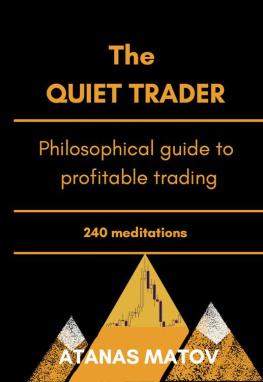

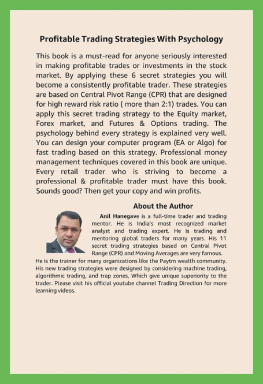
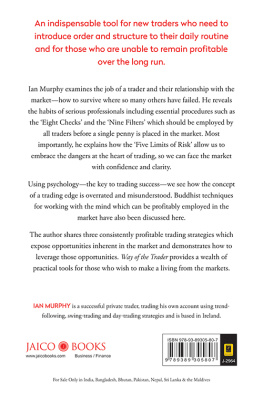

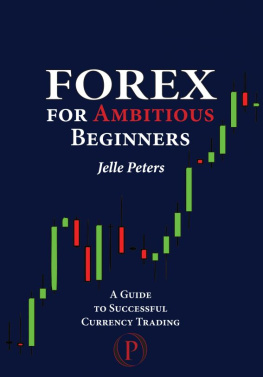
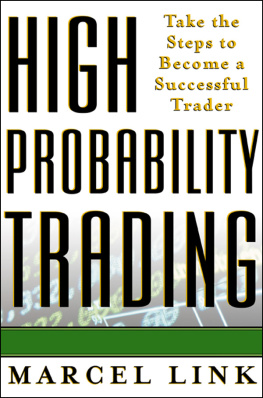
![Ryan Mallory [Ryan Mallory] - The Part-Time Trader: Trading Stock as a Part-Time Venture, + Website](/uploads/posts/book/124134/thumbs/ryan-mallory-ryan-mallory-the-part-time-trader.jpg)
